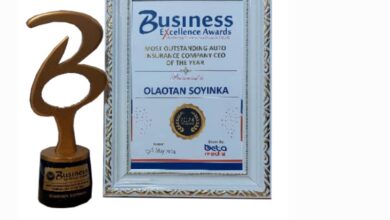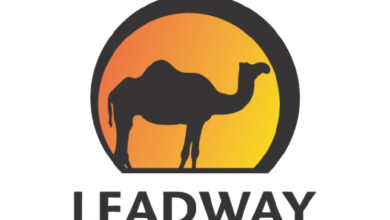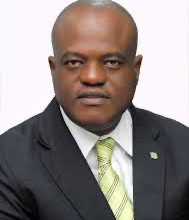How ATI Is Driving Sustainable Energy for Africa

Sustainable Energy for All (SE4All) is a United Nations global initiative aimed at promoting universal access to sustainable energy. Energy efficiency and renewable energy are two key prongs of the initiative.
African countries are faced with a range of challenges affecting its ability and capacity to support these types of projects, including political instability and limited technical knowledge.
In response to these challenges, the European Investment bank (EIB) formed the Africa Energy Guarantee Facility (AEGF) to unlock private-sector investments for SE4All projects in Africa.
In this effort, ATI has partnered with AEGF to leverage its risk mitigation capacity for qualifying energy projects. As a key partner for AEGF in Africa, ATI provides products to mitigate political risks and enhance credit guarantees in ATI member states.
With about 20 years of experience in African markets, ATI is ideally positioned to support SE4All in Africa. ATI bridges the relationship between all parties and understands the needs of both private and public sector interests in any African renewable energy project. We are backed by a network of the world’s largest development and financial institutions, and since 2008, have held an ‘A’ rating by Standard & Poor’s.
On Environmental Standards, the Agency ensures that the rules governing the environmental safeguards are outlined in the ATI Environmental Manual. This document lays out the guidelines to which each applicant for an ATI policy must adhere.
All applicants for an ATI insurance policy must submit a completed Environmental Information Note (EIN), which includes information on the direct, indirect and cumulative impact of a project or transaction on the environment, as well as the proposed mitigation measures to be implemented.
As an extra measure of protection, before ATI writes an investment insurance policy, they hire independent and internationally-recognized experts to conduct an environmental impact assessment for any transaction or project to ensure that it meets it’s standards.
Sustainable Energy for All (SE4ALL) is an international organization that works in partnership with the United Nations and leaders in government, the private sector, financial institutions, civil society and philanthropies to drive faster action towards the achievement of Sustainable Development Goal 7 (SDG7) – access to affordable, reliable, sustainable and modern energy for all by 2030 – in line with the Paris Agreement on climate.
SE4ALL works to ensure a clean energy transition that leaves no one behind and brings new opportunities for everyone to fulfil their potential.
The Sustainable Energy for All initiative was launched in 2011. by former UN Secretary-General, Ban Ki-Moon. As an independent organization, it maintain close links with the UN, including through a relationship agreement, partnerships with UN agencies and with it’s CEO acting as the UN Secretary-General’s Special Representative for Sustainable Energy for All and Co-Chair of UN-Energy.
SEforALL staffers are based at it’s headquarters in Vienna, Austria and at the satellite offices in Washington, DC, and New York, United States. Governance is provided by the SEforALL Administrative Board and Funders’ Council.
Journey towards Sustainable Energy for All
In September 2011, the then UN Secretary-General Ban Ki-moon announced at the UN General Assembly a new initiative called on Sustainable Energy for All. This was in the context of a resolution that declared 2012 the International Year of Sustainable Energy for All, sending a clear signal about the centrality of energy in ending poverty and addressing climate change.
As part of the initiative, the Secretary-General called for action around three objectives to be achieved by 2030: ensure universal access to modern energy services; double the rate of improvement of energy efficiency; double the share of renewable energy in the global energy mix.
To advance substantive work on the initiative, in 2012 the Secretary-General announced Kandeh Yumkella as his Special Representative for Sustainable Energy for All and the first CEO of the initiative.
As the initiative continued to grow and evolve, additional governance mechanisms were established, including an advisory board co-chaired by the Secretary-General and World Bank President Jim Yong Kim. An executive committee was also established for operational guidance, headed up by Bank of America’s then Chairman Chad Holliday.
Early Activities
In these early years, the UN Sustainable Energy for All initiative (SE4ALL) developed and implemented several High-Impact Opportunities in collaboration with its global network of partners.
Recognizing the importance of accountability and transparency to track progress toward the initiative’s three objectives, a multi-agency effort established the Global Tracking Framework (GTF) to provide baseline energy data and regular updates. The first GTF report was published in 2013, highlighting that a business-as-usual approach would not be sufficient to meet the 2030 objectives. Now an annual report and renamed Tracking SDG7: The Energy Progress Report, this global dashboard on progress continues to guide the work of the global body.
During the inaugural Sustainable Energy for All Forum held in 2014 in New York City, more than 1,000 leaders from civil society, the private sector and government converged at the three days interactive sessions which was focused at shaping the direction of global energy policy. The Forum continues to be a flagship event for SE4ALL, with each iteration delivering greater participation and reach.
The early work of SE4ALL as a UN initiative was instrumental in ensuring energy was at the heart of the 17 Sustainable Development Goals (SDGs) that were adopted by UN members in 2015. SDG7 is to ensure access to affordable, reliable, sustainable and modern energy for all, and the three initial objectives of SE4ALL were adopted as the targets for this global goal.
Evolving Structure
In 2015, the SE4ALL Executive Committee named Rachel Kyte as the new CEO and the UN Secretary-General appointed her as his Special Representative for Sustainable Energy for All. She was tasked with overseeing a significant shift in governance and mandate.
Under Rachel Kyte’s leadership, the initiative became Sustainable Energy for All (SEforALL), which was established as a Quasi-International Organization under Austrian law in 2016 and headquartered in Vienna with a satellite office in Washington, DC, United States. While this new structure gave SEforALL independence from the UN, close ties were maintained through a relationship agreement.
An Administrative Board was established as the new governing body for SEforALL, replacing the Executive Committee but retaining four members. The Advisory Board to former Secretary-General Ban Ki-moon was discontinued at the end of his term of office in December 2016.
Expanding the SEforALL Platform
After World leaders had jagreed on the 17 SDGs as well as the Paris Agreement, both underpinned by the pledge that SE4ALL leaves no one behind in the energy transition. These historic agreements were a catalyst for rethinking the role of SEforALL and how to best ensure progress towards the goals.
Following extensive consultations with the Administrative Board and other constituencies, SEforALL’s five-year Strategic Framework for Results was adopted in June 2016, built around SDG7 and the Paris Agreement. An annual work plan prioritizes those areas where progress is needed most to achieve universal access to sustainable energy. These include mobilizing finance, gender issues, electrification, and cooling, among others. Much of this work targets high-impact countries where the energy access gaps are the greatest.
The final decade to achieve SDG7
In October 2019, Damilola Ogunbiyi, former Managing Director of the Nigerian Rural Electrification Agency (REA), wasselected as the organization’s new Chief Executive Officer (CEO). The news followed United Nations (UN) Secretary-General António Guterres announcing the appointment of Ogunbiyi as his Special Representative for Sustainable Energy for All and Co-Chair of UN-Energy.
With the world not on track to achieve SDG7 by 2030, and with the COVID-19 pandemic further impacting momentum, the SEforALL Business Plan 2021-2023 reoriented the organization to focus on both high-level advocacy and country-specific implementation. The business plan emphasizes the importance of government engagement and collaboration with partners to drive progress.
SEforALL today is a vibrant, growing organization with a clear vision and increasing demand for its platform and its influence to accelerate action on SDG7.
In ensuring Environmental & Social Sustainability African Trade Insurance Agency strives for responsible corporate citizenship. ATI sees the protection of people and the environment as a simply good business sense, thereby adhering to international law, ethical standards, and international norms.
The Agency rigorously screen investment projects, underwriting only those which meet environmental and social sustainability standards.
ATI is a pan-African institution that provides political risk insurance to companies, investors, and lenders interested in doing business in Africa. With deep roots in Africa, we are best positioned to understand and assess the risks here – and to help mitigate them. As a result, we offer robust risk solutions to our clients. Our financial partners have come to rely on our assessments because of our credibility, financial strength, and underwriting capacity.
Establishment of ATI
ATI was established in 2000 by a group of African countries, under the leadership of COMESA which commissioned a World Bank-funded study to look into why the region wasn’t attracting more Foreign Direct Investments. The results showed political risks to be the main concern of investors.
A year later, ATI was launched with the mandate to provide risk solutions for investors.
in 2006 when member countries identified trade as another important pillar of growth, ATI added credit insurance to its bouquet of products. With additional funding and technical support from the World Bank and later, the African Development Bank, ATI has grown into a market leader for risk mitigation in Africa.
The Agency’s vision is to transform Africa into a prime trade and investment destination with the mission of turning African Risk into opportunity by providing Insurance and Financial products, in partnership with the private and public sector, while striving to carry out business with a customer-first approach combined with integrity, creativity, unity of purpose and an attitude of getting it right the first time.
ATI is mandated to facilitate, encourage and develop the provision of, or the support for insurance, including coinsurance and reinsurance, guarantees and other financial instruments and services for the purposes of promoting trade, investment and other productive activities in Africa in supplement to those which may be offered by the private sector, or in cooperation with the private sector.





